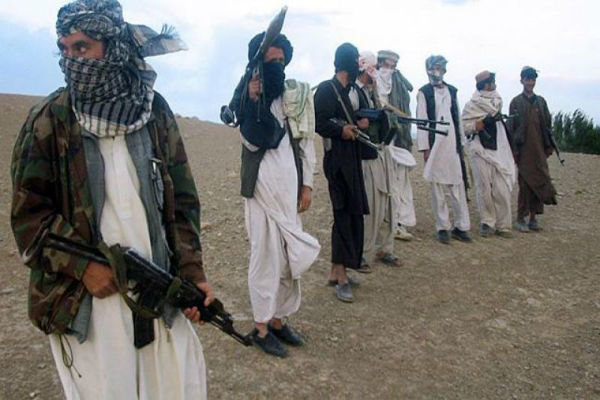The ISIS and Taliban terrorists, in a joint operation, overran the strategic Mirza Olang region in Afghanistan’s Sar-e Pol province on August 5, 2017, triggering a massive human tragedy.
According to reports by Afghan local media, Taliban and ISIS terrorists, in a coordinated move on August 5, raided the Mirza Olang village, and savagely set fire to mosques and prayer sites, decapitated or shot dead some 50 villagers, including women and children, and took more than 150 families hostage.
“Over the past few years, terrorist elements launched numerous attacks to seize the strategic Mirza Olang area, but were defeated every time. Finally, ISIS and al-Qaeda mobilized their forces and military equipment, launching a joint operation from nearby areas to capture the village,” Afghanistan’s Khabarnama website quoted Sar-e Pol province authorities as saying.
After 48 hours of resistance by Afghan government troops, terrorists managed to get into the village and began to kill villagers mercilessly. Hundreds of locals were made homeless and fled to nearby towns and cities, according to a Farsi report by Mizan.
Terrorists Enslaved Young Girls
“In addition to mercilessly killing and butchering children, women and the elderly in Mirza Olang village, Taliban and ISIS terrorists took around 80 villagers, including more than 30 young girls and women, to an unknown location in the very early hours of the raid,” says another Afghan news agency.
“Terrorists separated women and men, and transferred them to Pesta Mazar first before taking them to another area; however, no one knows their whereabouts,” according to the agency.
Shiites: Victims of Ashraf Ghani & Peace Activists’ Project
The Afghan Voice website also reported on Afghan President Ashraf Ghani’s passive reaction to the catastrophe.
The fury and protest by Afghan people, including Shiites and Sunnis as well as local officials in Sar-e Pol province, at Afghanistan’s central government over the disaster intensified when the Afghan government did not send any ground or air forces to the area even three days after the tragedy happened. That allowed terrorists to commit whatever crime they wanted against the defenseless people of Mirza Olang, from slaughtering children and women to kidnapping young women and girls to taking hundreds of Shiites hostage.
“From the early hours of the terrorists’ attack, some of my colleagues working for media and I gave the necessary precautions regarding possible crimes in Mirza Olang, but unfortunately, security and military authorities didn’t take our warning seriously until ISIS and Taliban terrorists began killing and slaughtering people in Mirza Olang,” said Zaher Vahdat.
Zaher Vahdat’s Calls and Rights Advocates’ Silence
After two days and the central government’s foot-dragging regarding the deployment of jet fighters and ground forces to save hundreds of residents of Mirza Olang taken captive by terrorists, Zaher Vahdat addressing everybody shouted, “Hey, the international community! Hey, the people of the world! Hey, you so-called advocates of fighting terrorism who are in Afghanistan! Hey, you supporters of human rights and humanity! Notorious and merciless ISIS and Taliban terrorists have taken more than 150 defenseless families captive in Mirza Olang village. They are keeping on killing people without any mercy and fear. Don’t allow Mirza Olang to be registered in the history of the 21st century as a place where defenseless women and children were killed, and don’t allow your silence to make you accessories to this disaster.”
Many analysts believe the fresh wave of unrest in Afghanistan and the Taliban and ISIS throwing their weight around in the country justify foreign powers’ military buildup in Afghanistan and their ever-increasing influence in the country under the pretext that the government is unable to establish security and fight terrorism in the country.
Captives Released Thanks to Efforts by Local Officials
Muhammad Hassan Sharifi Balkhabi, the representative of the Sar-e Pol province, has weighed in on the key reasons behind the tragedy.
“The disaster happened as a result of an insufficient number of military troops, the weakness of the local government and a lack of prompt support by the central government.”
Zabihollah Amani, a spokesperson for the governor of Sar-e Pol province, also told Afghan media that no troops were sent to the province despite repeated calls on military and security officials to do so.
